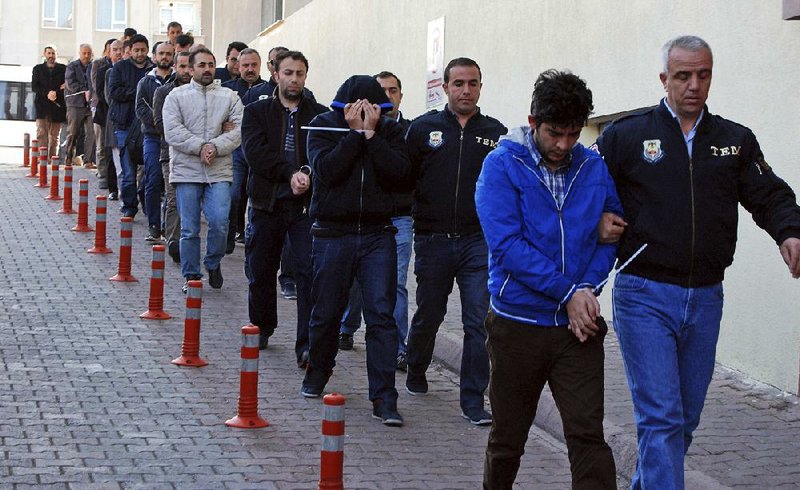ANKARA, Turkey -- Turkey's main opposition party said Wednesday that it will go to the European Court of Human Rights to challenge the outcome of the country's April 16 referendum on expanding the president's powers, a day after a Turkish court rejected its appeal.
The secular Republican People's Party is disputing the referendum, which gave President Recep Tayyip Erdogan's "yes" side a narrow victory. Critics say the vote had a number of irregularities, including an electoral board decision to count ballot papers that lacked official stamps. International monitors also noted irregularities in the voting process, saying the decision to validate the unstamped ballots removed an important safeguard against fraud and violated Turkey's laws.
Republican People's Party spokesman Selin Sayek Boke announced the party's decision to take the appeal to the Strasbourg, France-based court after the country's high administrative court rejected a bid to have the electoral board's decision on the unstamped ballot papers overturned.
The Supreme Electoral Board also rejected an appeal by the opposition last week.
"It is our duty to protect the votes of every citizen that went to the polls," Boke said. "We will be applying to the ECHR in the period ahead. We are confident that we will meet again in more enlightened times."
Erdogan and other government officials have said the electoral board's decision is final and that efforts to challenge it in courts -- including the European court -- would be futile. The electoral board has published past rulings on the validity of unstamped ballots.
The electoral board is expected to confirm the official results of the vote later this week. Unofficial results show that the "yes" side garnered 51.4 percent of the votes.
The voters approved of switching Turkey's system from a parliamentary to a presidential system, abolishing the office of the prime minister while greatly increasing the powers of the president.
The "no" camp fears the changes will lead to authoritarian rule with too few checks and balances. Erdogan has argued that a strong presidency will lead to greater stability and prosperity.
In Brussels, a senior European Union official said the referendum has raised "serious concerns" within the bloc on the democratic standards in Ankara, adding it was up to Erdogan to clarify whether Turkey still wants to become an EU member.
EU Commission Vice President Valdis Dombrovskis said that despite the rift between Turkey and the EU, cooperation on issues such as the migrant crisis remained necessary.
"We have serious concerns, but at the same time there are a number of areas where we must work together," Dombrovskis said.
EU Commissioner Johannes Hahn said, however, that it was "crucial" that the allegations of voting irregularities are addressed through transparent investigations.
Addressing the European Parliament in Brussels, Hahn added that "the close referendum result makes the need to seek a broad consensus all the more important" in Turkey.
Hungarian Prime Minister Viktor Orban, meanwhile, confirmed that he had congratulated Erdogan on his victory in the referendum.
Orban said that while the quality of democracy was important, the priority for Europe is Turkey's stability.
"We have to support those who can provide clear-cut stability in Turkey. If there is no stability in Turkey, we all will be in trouble soon," Orban said in Brussels.
Information for this article was contributed by Pablo Gorondi and Geir Moulson of The Associated Press.
A Section on 04/27/2017
